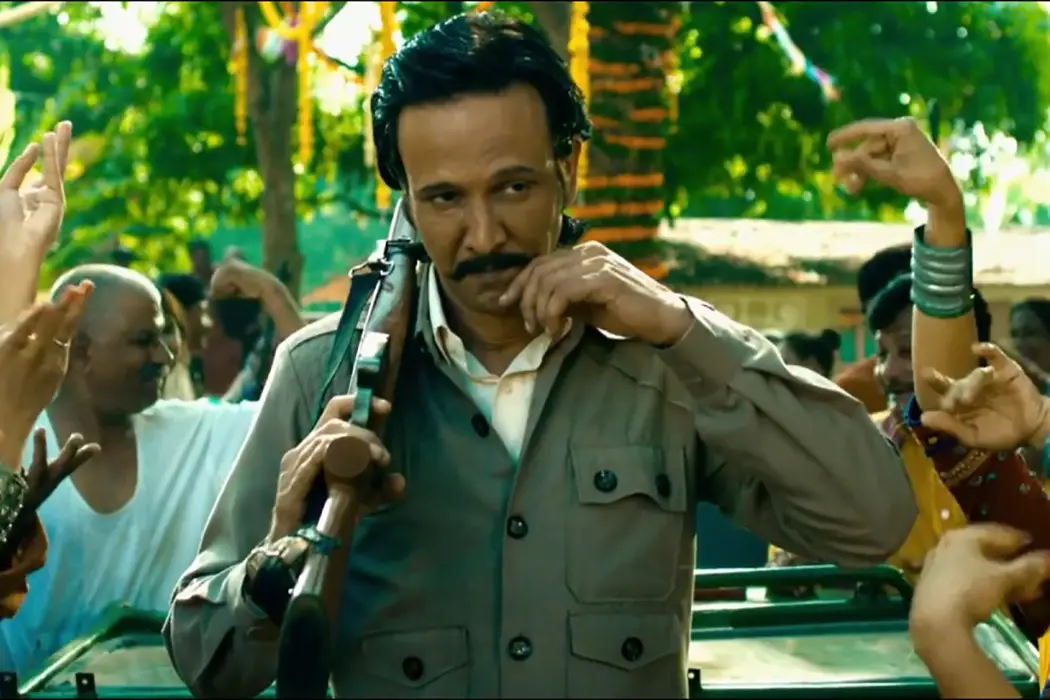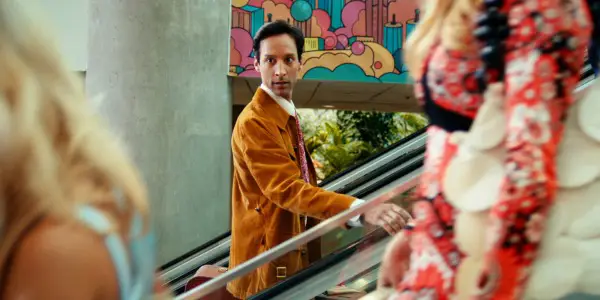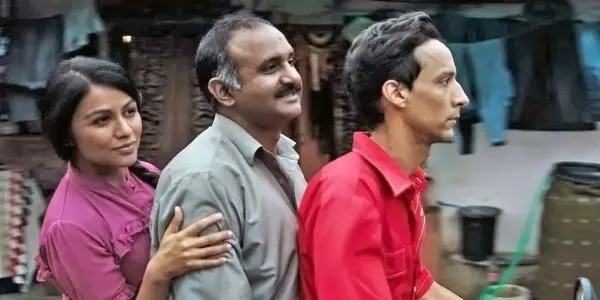THE TIGER HUNTER: Not Worth Hunting Down

Alistair is a 25 year old writer based in Cambridge.…
In the cult TV series Community, breakout character Abed had a tendency to only understand the world if it was presented to him via pop culture cliches and tropes. This naturally led the Dan Harmon-created sitcom into various elaborate one-off episodes channelling these different themes, and approaches to narrative – from exploring multiple timelines, to the stripped down nature of a “bottle episode”.
Despite ending after six seasons, Abed’s pop culture aided understanding of reality looms large over the new film starring the actor who played him, as the Danny Pudi starring dramedy The Tiger Hunter, which leaves no cliche unturned as it documents the American immigrant experience. It is so indebted to tropes you’d expect from both period movies and Sundance-baiting comedy-dramas, that it feels like a discarded idea for a Community episode satirising these tropes which has been transformed into a living, breathing cinematic mediocrity.
An Overly Familiar Immigrant Tale
Set in 1979, director Lena Khan’s film documents the life of Sami Malik (Pudi), who emigrates to America from India after receiving word on an engineer apprenticeship in Chicago. When he arrives, he finds that the job no longer exists – leading him into a low paying “draftsman” vacancy at the company, and moving into a one bedroom flat shared with a plethora of other Asian and African immigrants. Hearing that his would-be girlfriend Ruby (Karen David) is being taken by her father to the US to find a potential suitor, he comes up with a plan to help the company craft a microwave that fully cooks frozen food. This will lead him straight into an engineer job, that will get enough money to prove to her father that he is a successful and appropriate husband for his daughter.

Khan co-wrote the screenplay with Sameer Asad Gardezi, meaning that many of the tiny cultural details are right. In the opening prologue, as Sami reminisces about his legendary tiger hunting father, we see a fantastical village dance routine with lyrics in both Bengali and Punjabi – something my boyfriend informed me is geographically accurate, as the regions tigers are commonly found in are on India’s borders, where both languages are commonly spoken in tandem. Yet outside of this, the pair present a clumsy approach to representing an authentic immigrant culture, even leading to a central love plot that doesn’t argue against the idea of arranged marriage as an outdated practice.
Comparing this with the approach to arranged marriages in another lovelorn comedy about an Asian immigrant (The Big Sick), it can’t help but feel conservative in comparison – which is even stranger considering that this film benefits from an Asian director, which The Big Sick didn’t, who could easily overturn the cliches too. Khan and Gardezi are admirable in their attempts at portraying the trials and tribulations of the average Indian coming-of-age experience; it’s just sad that they never manage to get deeper than the same stereotypes and preconceptions general audiences may already have about their rich cultural background.
We need to see humanity beyond the cliches
As for the cliches in the approach to storytelling, Khan piles on a jukebox soundtrack that lets you know how to feel in every other scene, a wealth of unnecessary montages documenting inter-character relationships and, of course, repeated reminders that it’s 1979 due to over-emphasising the fashion of the era.

As Sami enters Chicago airport, he enters into a crowd of commuters that appear to represent every imaginable seventies subculture – before meeting a roommate/annoying comic sidekick (Rizwan Manji), who is randomly obsessed with the popular sitcoms of the time, even boasting a Mary Tyler Moore standee that he wishes to marry.
In fact, the central narrative arc around microwave innovation is increasingly becoming a common staple of seventies set narratives; this was the era when these “science ovens” (to quote Jennifer Lawrence in American Hustle) were just introduced on the market like an alien entity, preceding our society’s all encompassing obsession with technology.
This approach to storytelling and characterisation is particularly sad, because now more than ever, we need humane, optimistic stories about the American immigrant experience, not just reinforced familiarity. Despite the cliches listed above (and the numerous ones I have failed to mention), the entire film is uncynical and genuinely earnest in its populist comedy drama approach, in a feel good manner that only makes me wish The Tiger Hunter had the confidence to tell a less familiar, yet equally joyful, story about the central character’s experience.

After all, the characters are uniformly likeable (including an uncharacteristically restrained supporting turn from Jon Heder), despite existing in a period setting so hyper-real it feels imagined. Although, if you were to be charitable, Khan’s approach to the use of stereotypes in telling the story could easily be argued as an immigrant seeing the magic of the United States through the eyes of the near-mythical cliches associated with the country.
The Tiger Hunter: Conclusion
The jokes may unanimously fall flat, and The Tiger Hunter may offer no new (or believable) insight into the immigrant experience, but the film has a feel good, positive nature that redeems itself somewhat. In the current political climate, however, we need stories that offer more than merely making the audience feel good – as any immigration story that can be regarded as “flimsy” can easily be written off, at a time when audiences desperately need to engage with narratives about those from cultures other than their own.
What are the best films about the American immigrant experience?
The Tiger Hunter is released in US theatres on Friday, September 22nd.
Does content like this matter to you?
Become a Member and support film journalism. Unlock access to all of Film Inquiry`s great articles. Join a community of like-minded readers who are passionate about cinema - get access to our private members Network, give back to independent filmmakers, and more.
Alistair is a 25 year old writer based in Cambridge. He has been writing about film since the start of 2014, and in addition to Film Inquiry, regularly contributes to Gay Essential and The Digital Fix, with additional bylines in Film Stories, the BFI and Vague Visages. Because of his work for Film Inquiry, he is a recognised member of GALECA, the Gay & Lesbian Entertainment Critics' Association.













